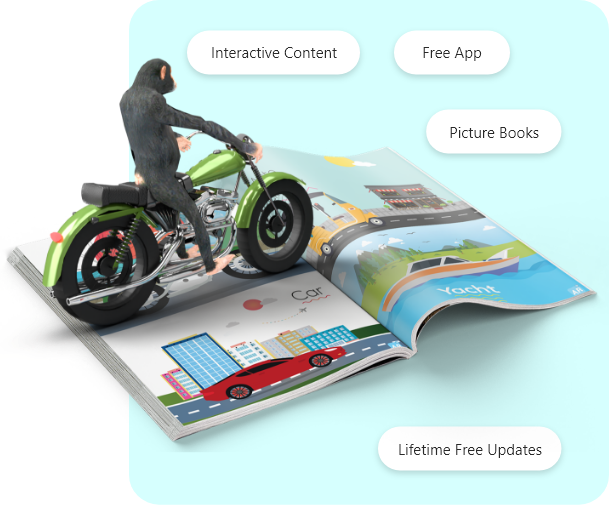Imagine classrooms where robots and AI answer your questions, learning happens through virtual reality adventures, your books come alive through AR and your progress powers personalised learning paths. This isn’t science fiction; it’s Education 4.0, the future of learning already knocking on our classroom doors.
But what exactly is Education 4.0, and why is now the perfect time for it?
Let’s dive into this exciting world and understand why it’s poised to revolutionise how we learn and prepare for the future.
Think of Education 4.0 as the next step in the evolution of education, similar to the Industrial Revolutions that transformed industries. Just like machines revolutionised production, technology is now transforming how we learn.

Personalised Learning: This uses AI and data analytics to personalise learning paths for each student, tailoring content and pace to their individual needs and strengths. Imagine a world where your learning journey adapts to your curiosity and mastery, making learning engaging and effective.
Lifelong Learning: In a world of constant change, it emphasises lifelong learning skills. Students learn to adapt, innovate, and critically think, preparing them for careers that may not even exist yet. It’s about empowering individuals to continuously learn and grow throughout their lives.
Technology-Driven Classrooms:

NO more static textbooks or boring lectures. Education 4.0 embraces cutting-edge technologies like virtual reality, augmented reality, and interactive simulations to create immersive learning experiences. One exciting example is interactive Augmented Reality (AR) books. Imagine a world where:
Pages come alive: Students point their tablets at illustrations, and animals jump, vehicles move in 3D, and historical figures step out of the pages, offering interactive explanations and engaging storytelling.

Learning becomes a game: AR books can embed interactive quizzes, puzzles, and mini-games within the story, turning learning into a fun and rewarding adventure. Imagine solving maths problems by building virtual robots or dissecting a virtual frog in 3D to understand anatomy.
Why Now? The Perfect Time for Education 4.0!
The world is changing rapidly, driven by technological advancements and globalisation. This creates a perfect storm for Education 4.0 to thrive:

The Skills Gap: Traditional education often falls short in preparing students for the demands of the 21st-century workforce. With automation replacing routine jobs, the importance of creative thinking, problem-solving, and collaboration is on the rise. Education 4.0, as outlined in the World Economic Forum’s “Future of Jobs 2023” report, focuses on cultivating these essential skills. By tailoring learning paths to individual strengths and interests, this revolution in education fosters curiosity, critical thinking, and problem-solving through active learning, moving beyond rote memorisation.
Project-Based Learning: Applying knowledge to real-world projects encourages collaboration, communication, and the ability to tackle complex challenges, preparing students for the “messy” realities of the workplace.
Interdisciplinary Learning: Breaking down silos between subjects cultivates creative thinking, innovative approaches, and the ability to see connections across disciplines, valuable skills for solving complex problems.
Real-World Examples:
Imagine a school using VR simulations to teach students about climate change, where they work together to design sustainable solutions. This fosters environmental awareness, problem-solving, and collaboration skills.
Another example could be a coding workshop where students create mobile apps addressing local community needs. This teaches coding skills, creative thinking, and the ability to apply technology to real-world problems.
Accessibility and Equity: Accessibility and equity lie at the core of Education 4.0, revolutionising the educational landscape by dismantling barriers to learning. In this paradigm, technology serves as a powerful equaliser, transcending geographical and socioeconomic constraints. By leveraging digital tools, this ensures that quality learning experiences are not confined by location or financial status. This transformative approach democratises education, opening doors for individuals from diverse backgrounds to access educational resources and opportunities. The integration of technology in Education 4.0 heralds a more inclusive era, where every learner, regardless of their background, can participate and thrive in the educational journey.

The Rise of the Digital Native: Today’s students are digital natives, born and raised in a world saturated with technology. They speak the language of apps, navigate digital landscapes with ease, and consume information in a constant, connected stream. It recognises this inherent tech-savviness and leverages it to create Engaging and Relevant Learning Experiences tailored to their digital lives.
Here’s how Education 4.0 capitalises on the Rise of the Digital Native:
Immersive Content: Virtual reality (VR) and augmented reality (AR) create enthralling learning environments. Imagine stepping into the heart of a rainforest to study ecosystems or dissecting a virtual frog in 3D to understand anatomy. These immersive experiences spark curiosity, solidify understanding, and make learning memorable and interactive.
Collaborative Learning: Online platforms and social media tools connect students across geographical boundaries, enabling real-time collaboration on projects, discussions, and problem-solving. This fosters communication, teamwork, and the ability to navigate diverse perspectives, crucial skills for the interconnected world.
Social Learning and Knowledge Sharing: Students become active participants in the learning process, contributing to online communities, sharing their knowledge, and co-creating content. This peer-to-peer learning empowers students to take ownership of their learning and develop critical thinking and communication skills.
Embracing Education 4.0 requires collaboration from educators, policymakers, and technology developers. We need to invest in infrastructure, teacher training, and research to ensure equitable access to this transformative learning experience.
The time for Education 4.0 is now. Let’s open the doors to a future where learning is personalised, engaging, and accessible to all, preparing individuals to thrive in a world of endless possibilities.




